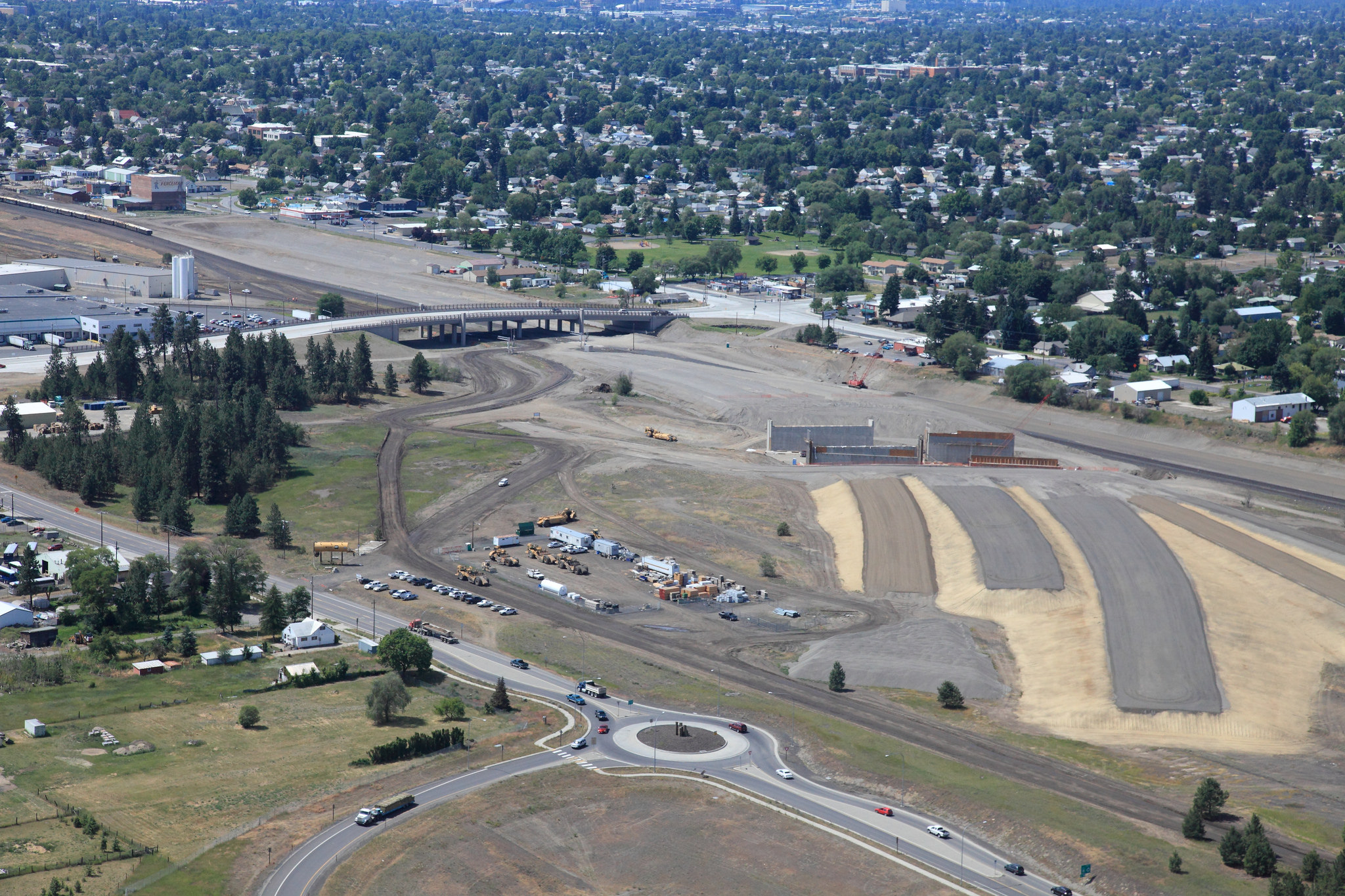In their fourth Highway Boondoggles report, U.S. PIRG and the Frontier Group profile wasteful highway projects that state DOTs are building across the country. Our final boondoggle is the North Spokane Corridor. The proposed highway will slice through a historic Spokane neighborhood and take money from other transportation priorities in order to shave just minutes off the drive to low-density suburbs north of the city.
The North Spokane Corridor (NSC) is a proposed highway that will connect Interstate 90, which runs East-West through the center of Spokane, to U.S. Route 395 north of the city. The cost of the project is $1.5 billion, the vast majority of which will come from state funding sources.
The NSC has been in the works for decades -- and has been a source of controversy the entire time, because it will slice through neighborhoods, including the historic community of Hillyard, and result in more than 500 homes being displaced. Hillyard business owners worry that the new highway will damage the district that they have worked to improve in recent years.
The project could also bring unwelcome changes to areas outside of Spokane. The Spokesman-Review newspaper estimates that the project will result in “quiet, rural areas in northeastern Washington [becoming] more crowded.” If that prediction plays out, and the new highway creates new demand for car travel north of Spokane, the highway would likely only provide a brief respite from congestion.
Even under current conditions, the congestion benefits of the highway are small. The top listed benefit on the project homepage is that it will shave around 10 minutes off the trip from I-90 to Wandermere, a suburban neighborhood in the northern section of Spokane. Critics of the project have suggested that the current amount of traffic could be carried by a much smaller boulevard, which unlike a highway could be walkable and bikeable.
Meanwhile, Washington and Spokane have other important transportation needs, including:
- Repairing roads and bridges. 67 percent of Washington roads are in poor or mediocre condition, eighth most in the country, and 26 percent of bridges are structurally deficient or functionally obsolete.
- Better transit in Spokane, which residents have supported at the ballot box. In November 2016 voters approved Proposition 1, “authorizing an increase in local sales and use tax of up to 0.2% to help maintain, improve and expand public transit in Spokane Transit's service area.” Despite the new revenue, Spokane’s transit system will need to compete for future grants to complete planned projects.
The NSC also constitutes a major expense that will add to Washington’s already growing and costly debt. In 2015, Washington had $8.5 billion in highway debt, nine times more than in 2000. And in 2014, Washington spent $457 million on debt servicing in 2014, three times more than in 2000. This debt has created difficult questions for state officials. In February 2018, Washington’s treasurer warned lawmakers against putting a $1.3 billion revenue windfall toward a property tax cut, arguing it should instead be used to pay down state debt.






